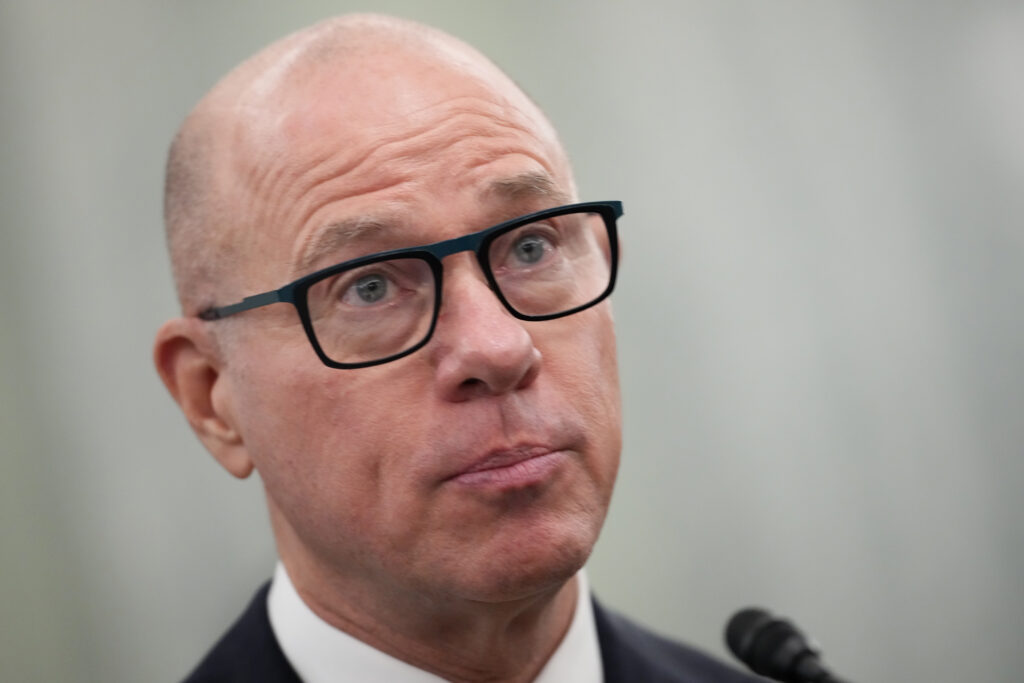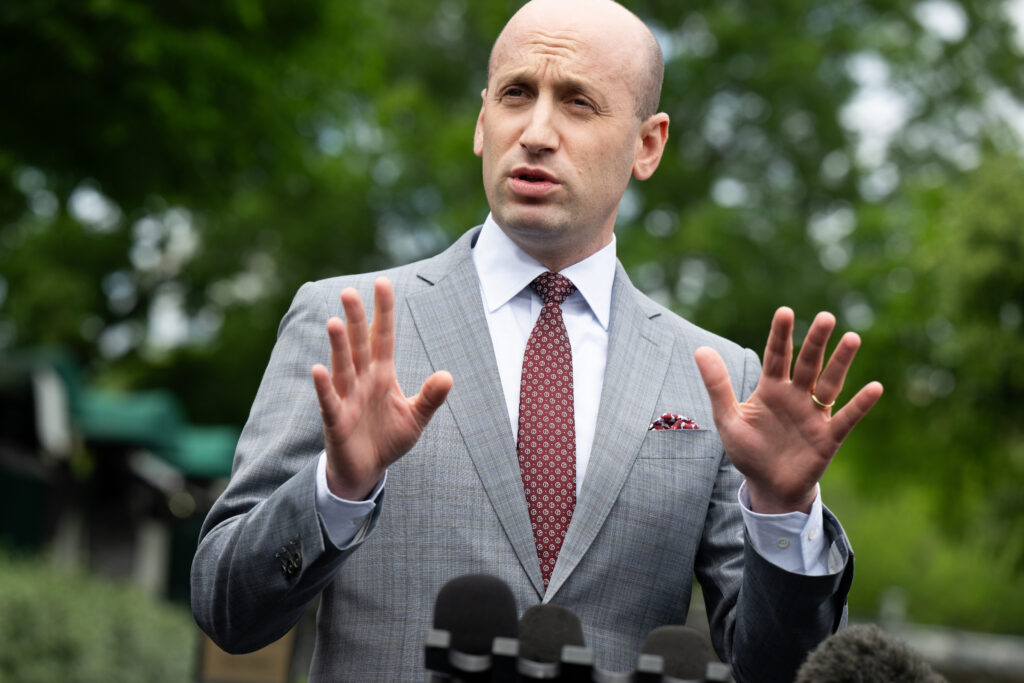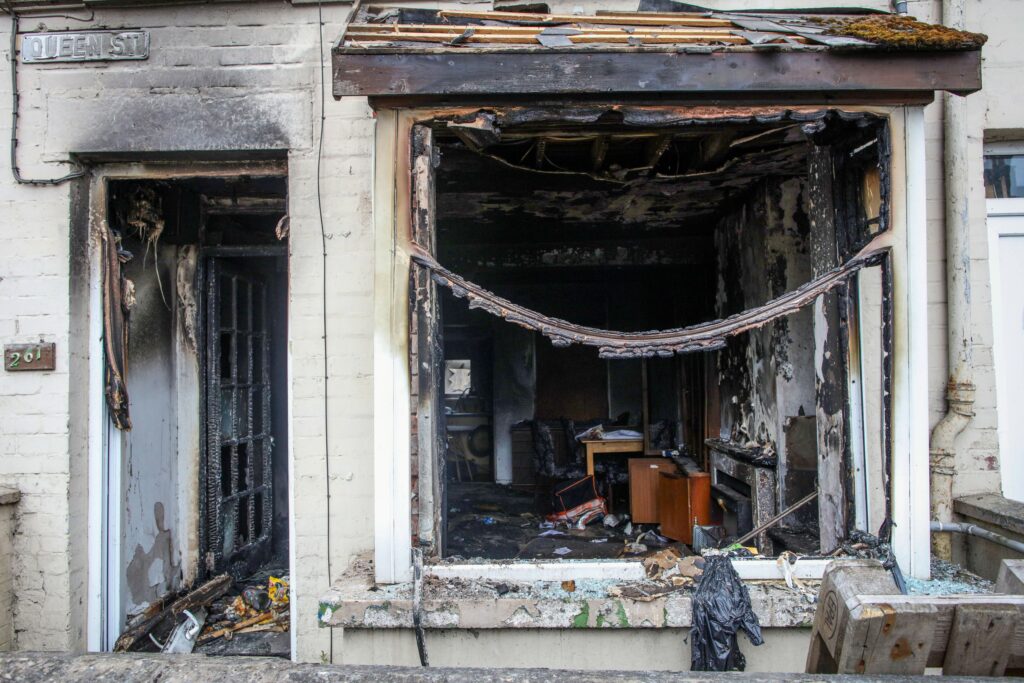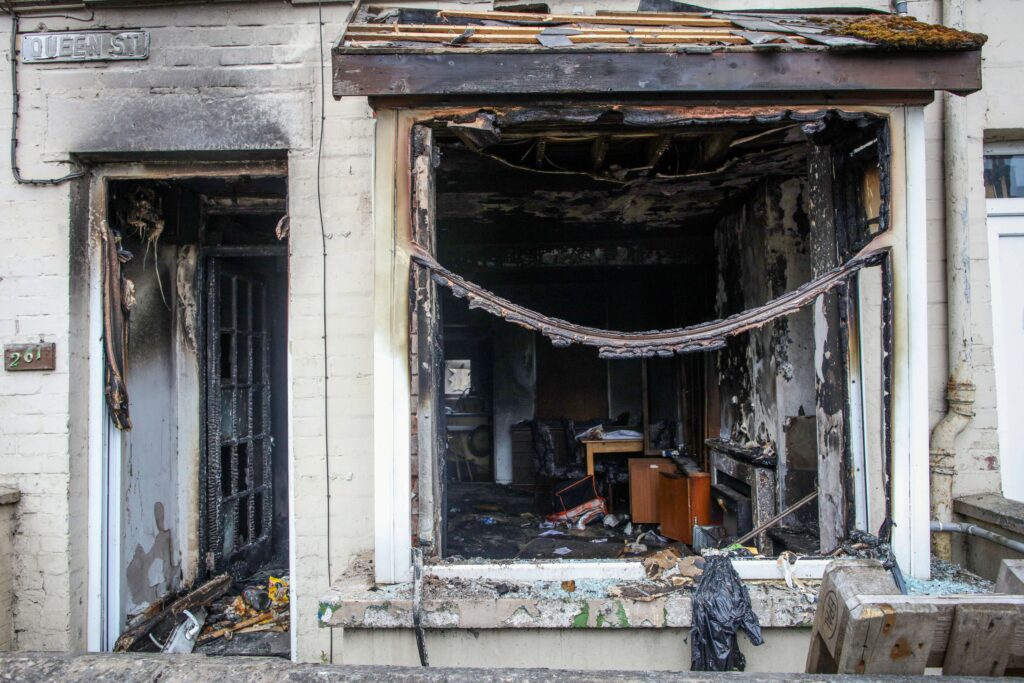Trump nominee pledges to upgrade creaky US air traffic system
President Donald Trump’s nominee to lead the US air safety agency pledged Wednesday to upgrade the nation’s aging air traffic system and address staffing shortfalls.During the opening to his confirmation hearing to lead the Federal Aviation Administration (FAA), Bryan Bedford referenced recent US aviation incidents, including a January crash at Washington’s Reagan National Airport in which 67 people died, the first major US commercial crash since 2009.”I can assure all of you that, if confirmed, my top priority will be public safety and in restoring the public’s confidence in flying,” Bedford told the Senate commerce committee.Bedford, the CEO of regional airline Republic Airways, strongly endorsed an ambitious overhaul of the US air traffic control system, championed by Transportation Secretary Sean Duffy, which has been estimated to cost more than $30 billion. The push comes on the heels of troubling incidents at Newark Airport in New Jersey when air traffic controllers lost contact with planes on radar or by radio for 90 seconds because of telecommunications outages.The aviation industry has rallied behind Duffy’s plan, with backers calling it a long overdue update of equipment installed decades ago.While Wednesday’s hearing did not feature the sort of hostile exchanges seen at some confirmation hearings, multiple Democratic lawmakers probed Bedford’s effort at Republic in 2022 to streamline pilot training requirements amid staff shortages connected to surging travel demand following Covid-19 lockdowns.The FAA turned down a Republic request to allow graduates of the company’s own flight academy to become co-pilots with just 750 flight hours rather than the 1,500 hours required under 2010 congressional legislation.”This a perilous moment for aviation safety,” said Illinois Democratic Senator Tammy Duckworth as she urged preservation of the 1,500-hour rule. “Well-trained pilots are our last line of defense in incident after incident.”In response, Bedford told Duckworth that their positions were not far apart, saying “we both want to have the safest pilots operate our aircraft.”But Bedford appeared to open the door to potentially easing the requirement, saying “I don’t believe safety is static.”
Stephen Miller: ‘Trump’s brain’ behind migration crackdown
For Stephen Miller, the architect of US President Donald Trump’s hardline migration policy, the protests in Los Angeles were nothing less than the front line of a “fight to save civilization itself.”Hyper-loyalist Miller, 39, has carved out a niche as Trump’s most powerful and hawkish advisor on the Republican’s signature issue of immigration.A combative presence on the White House driveway, Miller is frequently rolled out in public to double down on the president’s comments in front of the cameras and frequently spars with reporters.But the sharp-suited advisor’s comments on Los Angeles — which echo hard-right talking points about the decline of the West as it faces an “invasion” of migrants — underscored that the topic is not just political for him, but existential.His fingerprints have been all over the White House’s unprecedented assertion of its right to use presidential power to pursue its agenda, often using centuries-old or rarely cited laws to deport migrants.And Miller, who is formally Trump’s Deputy Chief of Staff for Policy and Homeland Security Advisor, is at the sharp end of things too.- ‘Ruins of the West’ -It was Miller who, according to the Wall Street Journal, issued US Immigration and Customs Enforcement (ICE) with orders in May to step up its work after the number of daily deportations under Trump fell below those carried out by Joe Biden’s administration last year.Those orders led to the immigration raids on a Home Depot in Los Angeles that triggered clashes between protesters and federal agents — and Trump’s decision to send in thousands of troops.Miller, who grew up in LA’s Santa Monica, has since taken to social media to battle Democrats who accuse Trump of authoritarianism.”We’ve been saying for years this is a fight to save civilization. Anyone with eyes can see that now,” Miller said on X on Sunday.A few days earlier he set out his right-wing worldview more explicitly as he pushed for Trump’s new “big, beautiful” spending bill, which contains provisions for migration.”We will be debating these matters over the ruins of the West if we don’t control migration,” he wrote on June 4.Critics say such comments echo the far-right “replacement theory” about migration undermining Western society. Indeed, during Trump’s first term, Miller’s hardline stance made him something of an outlier.As a young firebrand, Miller was one of the architects of the so-called “Muslim travel bans” in Trump’s first presidency, which later ran into legal difficulties after they were poorly drafted.Miller largely avoided the chaotic feuding that engulfed Trump’s first White House, resulting in somewhat more moderate voices winning out on immigration policies.Miller, however, remained loyal, and stuck by his boss even as Trump’s first term ended in the disgrace of the US Capitol attack on January 6, 2021.- Musk blip -In the second Trump administration, Miller’s views have become mainstream. “I call Stephen ‘Trump’s brain,'” Republican former House speaker Kevin McCarthy told the New York Times just before Trump’s inauguration in January.Miller was the driving force in particular behind the use of an obscure 200-year-old wartime law to deport undocumented migrants — and a vocal defender when that crackdown saw a man wrongly deported to El Salvador.He also outraged Democrats when he said on May 9 that the White House was “looking into” suspending habeas corpus, which would prevent migrants targeted for mass deportations to appeal for their right to appear in court.Miller recently claimed a media scalp when broadcaster ABC dropped a veteran correspondent, Terry Moran, who described the Trump aide as a “world-class hater” in a late-night social media screed.One blip, however, came when Miller and his wife Katie found themselves caught up in the explosive split between Trump and his billionaire advisor Elon Musk.Katie Miller had been a senior advisor and spokeswoman in Musk’s Department of Government Efficiency (DOGE) — and was reportedly set to leave and work for Musk’s companies when he departed the White House.But the couple now find themselves, professionally speaking, on opposite sides of the break-up between the world’s richest person and its most powerful.
Craintes d’une troisième nuit d’émeutes en Irlande du Nord, malgré les appels au calme
La police nord-irlandaise se prépare mercredi à de nouvelles violences, malgré l’appel au calme des dirigeants de la province après deux nuits d’émeutes visant des immigrés et des affrontements avec les forces de l’ordre dans la ville de Ballymena.A l’issue de ces heurts, qualifiés d'”insensés” par le Premier ministre travailliste Keir Starmer, six personnes ont été arrêtées et l’une d’elles a été inculpée pour troubles à l’ordre public, a déclaré mercredi un responsable de la police, Ryan Henderson, lors d’une conférence de presse.Trente-deux policiers ont été blessés lundi et mardi soir dans ces incidents survenus principalement dans la ville de Ballymena, située à une cinquantaine de kilomètres au nord-ouest de Belfast.Ils ont éclaté après l’inculpation lundi de deux adolescents pour la tentative de viol d’une jeune fille. La police, qui évoque des violences “motivées par des considérations raciales”, ne souhaite pas communiquer sur l’origine des deux jeunes de 14 ans inculpés pour cette tentative de viol. Selon les médias britanniques, ils se sont exprimés par l’intermédiaire d’un interprète roumain lors de leur comparution lundi au tribunal.Mardi soir, des centaines d’individus ont pris pour cible des habitations et commerces et jeté des briques, fusées et cocktails Molotov sur la police. Des “troubles sporadiques” ont aussi eu lieu dans d’autres villes nord-irlandaises, notamment à Belfast, ainsi que dans deux villes à proximité, Carrickfergus et Newtownabbey.”Je condamne fermement les violences observées cette nuit à Ballymena et dans d’autres endroits d’Irlande du Nord, notamment contre des agents de police”, a déclaré Keir Starmer devant le Parlement.La police nord-irlandaise a indiqué avoir appelé des renforts du reste du pays en prévision de nouvelles violences.”Nous pourrions en voir davantage ce soir (mercredi) et c’est pourquoi nous nous préparons”, a indiqué Ryan Henderson. Les représentants du gouvernement nord-irlandais, composé de quatre partis politiques et dirigé par l’élue républicaine du Sinn Fein Michelle O’Neill, ont condamné ces “violences à caractère raciste” et lancé “un appel urgent au calme” mercredi.”Rien ne saurait justifier ces violences, au cours desquelles des habitants ont été traumatisés et de nombreux policiers blessés”, ont fustigé les membres de l’exécutif, au sein duquel nationalistes du Sinn Fein et unionistes du DUP gouvernent de concert.Ces émeutes ont notamment visé des zones où vivent des immigrés roumains à Ballymena. “Ce sont les Roumains qui sont plus spécifiquement ciblés”, estime ainsi Nicola Guy, une habitante de Ballymena âgée de 42 ans, résidant non loin d’une maison incendiée qui était habitée par une famille de Roms.Selon la police, ce sont surtout des jeunes locaux qui ont pris part aux heurts, même si elle n’a pas exclu l’implication de personnes extérieures à la ville, pointant le rôle des réseaux sociaux.- “Division et désordre”.A Ballymena, un habitant interrogé mardi par l’AFP avait indiqué avoir accroché un drapeau britannique devant sa maison “par précaution, pour que les gens sachent que ce n’est pas un étranger qui vit ici”.Les premières violences ont éclaté lundi soir à l’issue d’un rassemblement en soutien à la jeune victime de la tentative de viol présumée et à sa famille.”Ces actes criminels mettent non seulement des vies en danger, mais risquent également de compromettre la procédure pénale en cours”, a souligné mercredi le commissaire Jon Boutcher.”Les actes motivés par la haine et la loi de la foule ne font que déchirer le tissu de notre société: ils ne résolvent rien et ne servent à personne”, a-t-il ajouté.”Ceux qui instrumentalisent la situation pour attiser les tensions raciales se moquent de la justice et n’ont rien à offrir à leurs communautés, si ce n’est de la division et du désordre”, ont renchéri les membres de l’exécutif dans leur communiqué commun.Mais le député du parti Traditional Unionist Voice Jim Allister a toutefois souligné à la chambre des Communes à Londres que s’il n’y a “aucune excuse” pour de tels actes, “le gouvernement doit prendre conscience des tensions sous-jacentes engendrées par une immigration incontrôlée et souvent clandestine”.La province a été secouée à l’été dernier, comme d’autres endroits du Royaume-Uni, par des émeutes anti-immigration. Elles avaient été déclenchées par les meurtres de trois fillettes dans une attaque au couteau, dans le nord-ouest de l’Angleterre, après la diffusion en ligne de fausses rumeurs sur l’identité de l’assaillant.
Craintes d’une troisième nuit d’émeutes en Irlande du Nord, malgré les appels au calme
La police nord-irlandaise se prépare mercredi à de nouvelles violences, malgré l’appel au calme des dirigeants de la province après deux nuits d’émeutes visant des immigrés et des affrontements avec les forces de l’ordre dans la ville de Ballymena.A l’issue de ces heurts, qualifiés d'”insensés” par le Premier ministre travailliste Keir Starmer, six personnes ont été arrêtées et l’une d’elles a été inculpée pour troubles à l’ordre public, a déclaré mercredi un responsable de la police, Ryan Henderson, lors d’une conférence de presse.Trente-deux policiers ont été blessés lundi et mardi soir dans ces incidents survenus principalement dans la ville de Ballymena, située à une cinquantaine de kilomètres au nord-ouest de Belfast.Ils ont éclaté après l’inculpation lundi de deux adolescents pour la tentative de viol d’une jeune fille. La police, qui évoque des violences “motivées par des considérations raciales”, ne souhaite pas communiquer sur l’origine des deux jeunes de 14 ans inculpés pour cette tentative de viol. Selon les médias britanniques, ils se sont exprimés par l’intermédiaire d’un interprète roumain lors de leur comparution lundi au tribunal.Mardi soir, des centaines d’individus ont pris pour cible des habitations et commerces et jeté des briques, fusées et cocktails Molotov sur la police. Des “troubles sporadiques” ont aussi eu lieu dans d’autres villes nord-irlandaises, notamment à Belfast, ainsi que dans deux villes à proximité, Carrickfergus et Newtownabbey.”Je condamne fermement les violences observées cette nuit à Ballymena et dans d’autres endroits d’Irlande du Nord, notamment contre des agents de police”, a déclaré Keir Starmer devant le Parlement.La police nord-irlandaise a indiqué avoir appelé des renforts du reste du pays en prévision de nouvelles violences.”Nous pourrions en voir davantage ce soir (mercredi) et c’est pourquoi nous nous préparons”, a indiqué Ryan Henderson. Les représentants du gouvernement nord-irlandais, composé de quatre partis politiques et dirigé par l’élue républicaine du Sinn Fein Michelle O’Neill, ont condamné ces “violences à caractère raciste” et lancé “un appel urgent au calme” mercredi.”Rien ne saurait justifier ces violences, au cours desquelles des habitants ont été traumatisés et de nombreux policiers blessés”, ont fustigé les membres de l’exécutif, au sein duquel nationalistes du Sinn Fein et unionistes du DUP gouvernent de concert.Ces émeutes ont notamment visé des zones où vivent des immigrés roumains à Ballymena. “Ce sont les Roumains qui sont plus spécifiquement ciblés”, estime ainsi Nicola Guy, une habitante de Ballymena âgée de 42 ans, résidant non loin d’une maison incendiée qui était habitée par une famille de Roms.Selon la police, ce sont surtout des jeunes locaux qui ont pris part aux heurts, même si elle n’a pas exclu l’implication de personnes extérieures à la ville, pointant le rôle des réseaux sociaux.- “Division et désordre”.A Ballymena, un habitant interrogé mardi par l’AFP avait indiqué avoir accroché un drapeau britannique devant sa maison “par précaution, pour que les gens sachent que ce n’est pas un étranger qui vit ici”.Les premières violences ont éclaté lundi soir à l’issue d’un rassemblement en soutien à la jeune victime de la tentative de viol présumée et à sa famille.”Ces actes criminels mettent non seulement des vies en danger, mais risquent également de compromettre la procédure pénale en cours”, a souligné mercredi le commissaire Jon Boutcher.”Les actes motivés par la haine et la loi de la foule ne font que déchirer le tissu de notre société: ils ne résolvent rien et ne servent à personne”, a-t-il ajouté.”Ceux qui instrumentalisent la situation pour attiser les tensions raciales se moquent de la justice et n’ont rien à offrir à leurs communautés, si ce n’est de la division et du désordre”, ont renchéri les membres de l’exécutif dans leur communiqué commun.Mais le député du parti Traditional Unionist Voice Jim Allister a toutefois souligné à la chambre des Communes à Londres que s’il n’y a “aucune excuse” pour de tels actes, “le gouvernement doit prendre conscience des tensions sous-jacentes engendrées par une immigration incontrôlée et souvent clandestine”.La province a été secouée à l’été dernier, comme d’autres endroits du Royaume-Uni, par des émeutes anti-immigration. Elles avaient été déclenchées par les meurtres de trois fillettes dans une attaque au couteau, dans le nord-ouest de l’Angleterre, après la diffusion en ligne de fausses rumeurs sur l’identité de l’assaillant.
Volant-éthylotest, détecteur de chutes… De nouvelles technologies au service de la sécurité routière
Un volant-éthylotest, une appli pour motards, les gestes qui sauvent en réalité virtuelle: le chef étoilé Yannick Alléno, personnellement touché par un drame de la route, a distingué mercredi au salon VivaTech à Paris plusieurs innovations mettant “la technologie au service de la vie”.L’association Antoine Alléno, du nom de son fils tué en 2022 par un chauffard ivre, a lancé l’an dernier le challenge Impact pour encourager des start-up à développer des solutions concrètes et rapidement déployables en matière de sécurité routière.Trois lauréats, et deux coups de coeur, ont été sélectionnés parmi 120 candidatures, de 42 pays. Ils se partageront 50.000 euros et bénéficieront d’un accompagnement afin de les aider à mener à bien leurs projets.- Volant-éthylotest -La start-up Ethylowheel travaille sur un dispositif permettant de mesurer le taux d’alcoolémie par un simple contact avec la peau, et potentiellement intégrable au volant de n’importe quel véhicule. “Quand on consomme de l’alcool, quatre voies d’élimination se mettent en place: le foie, les reins, les poumons et la peau. Nous, on vient mesurer avec des petits capteurs ultrasensibles l’infime quantité d’alcool éliminée par la peau et on la relie à l’alcool dans le sang”, explique Julie Bruguière, ingénieure en chimie et biologie de 29 ans.Ce volant-éthylotest pourrait-il bloquer le démarrage du véhicule au-delà du taux réglementaire ?”On rentre là dans des questions politiques”, répond l’autre cofondateur de la jeune pousse, Jaime Alonso, 30 ans. “C’est à étudier avec les constructeurs: soit on bloque le volant, soit on émet un son comme avec la ceinture de sécurité.”Ethylowheel estime que sa solution “réduit le risque de triche” par rapport aux éthylotests antidémarrage existants, puisque la mesure par la peau se fait “tout au long du trajet et pas seulement au moment du démarrage”, quand une autre personne peut souffler à la place du conducteur.- Détection automatique des chutes à moto -L’application Liberty Rider, grâce aux capteurs du téléphone et à des algorithmes, détecte automatiquement une chute à moto et déclenche une alerte pendant 120 secondes.Si elle n’est pas désactivée, un service d’assistance appelle le motard à trois reprises. En l’absence de réponse, les secours sont envoyés sur les lieux de l’accident.Après huit années d’existence et plus de deux millions de téléchargements de son appli, la start-up, qui a développé des partenariats avec des assureurs, a décidé d’élargir son champ d’action à la prévention.”Au bout d’un moment, on s’est rendu compte qu’on comptait les accidents, qu’on était un peu expectatifs”, raconte Emmanuel Petit, son président. “Notre coeur de métier, maintenant, c’est d’aller prévenir l’accident.”Cela passe notamment par des alertes météo ou sur l’état des routes grâce à des données collectées en temps réel.- Les gestes qui sauvent en réalité virtuelle -La société D’un seul geste propose une formation aux gestes qui sauvent “plus courte”, “plus efficace” et “plus attractive”, à l’aide de casques de réalité virtuelle.Alors que seulement 20% de la population française est formée à ces gestes, très loin de certains autres pays européens, cette technologie permet de réduire le temps de formation à une heure, au lieu d’une ou deux journées.”On gagne du temps et, en plus, on mémorise mieux”, affirme le cofondateur et président D’un seul geste, Emmanuel Bourcet. “Quand vous êtes en immersion, votre cerveau, on le trompe et vous avez l’impression de vivre la séquence.””Et quand vous avez le casque sur la tête, vous êtes concentrés à 100%. Vous ne pensez pas aux notifs de votre téléphone, aux courses à faire pour le soir…”, poursuit-il. “On vous met dans un autre univers.” Un univers imaginé avec un comité scientifique dans lequel des moyens mnémotechniques permettent de bien assimiler les gestes qui sauvent, comme pratiquer un massage cardiaque sur le rythme de la chanson des Bee Gees, au titre de circonstance: “Stayin’ Alive”.
La Bourse de Paris freinée par l’incertitude de la politique commerciale sino-américaine
La Bourse de Paris a terminé en repli de 0,36% mercredi, à l’issue d’une séance hésitante, le marché saluant une inflation américaine moins élevée qu’attendu mais restant freiné par l’incertitude autour des négociations commerciales avec les Etats-Unis.L’indice vedette parisien CAC 40 a reculé de 28,43 points et a clôturé à 7.775,90 points. La veille, il avait terminé en hausse de 0,17%.”La réaction initiale du marché à l’inflation américaine a été positive”, commente Andrea Tueni, responsable de la relation clients et des activités de marchés de Saxo Banque.Aux Etats-Unis, en mai, les prix à la consommation ont progressé de 2,4% sur un an, contre 2,3% en avril, selon l’indice CPI publié par le ministère du Travail et sur lequel sont indexées les retraites américaines. D’un mois sur l’autre, l’indice CPI a ralenti à 0,1% en mai (contre 0,2% en avril), tiré vers le bas par le recul des prix de l’énergie. “C’est un premier signal qui indique que si nous n’avions pas de droits de douane de Trump, la banque centrale américaine serait largement en position d’assouplir sa politique monétaire”, commente Andrea Tueni, responsable de la relation clients et des activités de marchés de Saxo Banque.Toutefois, même si “les signaux semblent positifs, le manque de visibilité pèse toujours” sur les questions commerciales avec les Etats-Unis, a poursuivi M. Tueni.Le président américain s’est félicité d’un accord de principe trouvé entre Washington et Pékin dans la nuit à Londres et qui devrait permettre la fourniture de terres rares chinoises aux Etats-Unis.Cet accord est “soumis à une approbation finale du président Xi et moi-même”, a écrit Donald Trump sur son réseau Truth Social. “Les terres rares nécessaires seront fournies”, a-t-il ajouté.Trump a aussi affirmé qu’au total, les droits de douane américains sur les produits chinois atteignent en moyenne 55%.Publicis saluéLe géant français de la publicité Publicis a terminé en hausse de 2,46% à 99,84 euros après avoir remporté un important appel d’offres pour gérer la communication publicitaire du groupe Mars, propriétaire de marques comme M&M’s, Snickers ou encore Whiskas. “À la suite d’un processus d’appel d’offres particulièrement compétitif, Mars a nommé Publicis pour diriger ses activités média, production, réseaux sociaux, influence et commerce en ligne”, a annoncé le groupe américain dans un communiqué de presse mardi, confirmant des informations du média financier Bloomberg, qui estimait le budget publicité de Mars à 1,7 milliards de dollars.Fnac Darty saluéLe distributeur de matériel électroménager et d’électronique Fnac Darty a dévoilé mercredi son plan stratégique pour les cinq prochaines années, avec pour objectif d’accélérer dans la vente de services, tout en ouvrant quelque 150 magasins en Europe.Ces annonces, saluées en Bourse ont permis au titre de bondir de 7,82% à 32,40 euros sur l’indice élargi SBF 120 à Paris.
En mai, la chaleur est restée la norme, sur terre comme pour les mers
La chaleur est restée la nouvelle norme dans le monde au mois de mai, aussi bien sur terre que sur les mers, nombre d’entre elles connaissant toujours des températures “inhabituellement élevées” comme depuis plus de deux ans.Même s’il est repassé sous le seuil de 1,5°C de réchauffement par rapport à l’ère préindustrielle, le mois dernier a été le deuxième mai le plus chaud dans le monde, juste derrière mai 2024, selon l’observatoire européen Copernicus. Il a été marqué par une température moyenne de 15,79°C, soit 0,12°C plus frais que le record enregistré il y a un an mais légèrement plus chaud que mai 2020, qui se classe troisième.Idem pour les océans: avec 20,79°C en surface, le mois est aussi le deuxième plus chaud de l’histoire récente, derrière mai 2024. Mais ces températures sont restées “inhabituellement élevées” dans nombre de mers ou de bassins océaniques, observe Copernicus.”De larges zones dans le nord-est de l’Atlantique nord, qui ont connu des canicules marines, ont enregistré des températures de surface record pour le mois. La plupart de la mer Méditerranée était beaucoup plus chaude que la moyenne”, observent les experts.La santé des océans est au coeur de la troisième Conférence des Nations Unies qui leur est dédiée (UNOC) et se tient actuellement à Nice. Les épisodes de canicule marine peuvent entraîner des migrations et des épisodes de mortalité massive d’espèces, dégrader les écosystèmes, mais aussi réduire la capacité des couches océaniques à se mélanger entre le fond et la surface, entravant ainsi la distribution des nutriments.Les océans, qui recouvrent 70% de la surface du globe, agissent aussi comme un régulateur majeur du climat terrestre. Des eaux plus chaudes entraînent des ouragans et des tempêtes plus violentes, avec leur cortège de destructions et d’inondations.Copernicus note que le printemps a été très contrasté en Europe en termes de pluies. “Certaines parties de l’Europe ont connu leurs plus bas niveaux de précipitations et d’humidité des sols depuis au moins 1979”, notent les experts.Le printemps a battu plusieurs records climatiques au Royaume-Uni, et une sécheresse jamais vue depuis des décennies frappe aussi depuis plusieurs semaines le Danemark et les Pays-Bas, faisant craindre pour les rendements agricoles et les réserves en eau.Plus de la moitié (52%) des sols en Europe et sur le pourtour méditerranéen étaient affectés par la sécheresse fin mai, un record mensuel depuis le début des observations en 2012, selon l’analyse par l’AFP des données de l’Observatoire européen de la sécheresse (EDO).- “Bref répit” -Le mois dernier s’est inscrit 1,40°C au-dessus de la moyenne des années 1850-1900, qui correspondent à l’ère préindustrielle, avant que l’utilisation massive des énergies fossiles ne réchauffe durablement le climat. “Mai 2025 interrompt une longue séquence inédite de mois supérieurs à 1,5°C” de réchauffement, souligne Carlo Buontempo, directeur du service du changement climatique de Copernicus (C3S): 21 mois sur 22 avaient auparavant franchi ce seuil symbolique, qui marque l’objectif le plus ambitieux de l’accord de Paris.”Cela offre peut-être un bref répit pour la planète mais on s’attend bien à ce que le seuil de 1,5°C soit franchi de nouveau dans un avenir proche en raison du réchauffement continu du système climatique”, a-t-il souligné.Sur une période de douze mois (juin 2024-mai 2025), le réchauffement atteint 1,57°C par rapport à l’ère préindustrielle.Les températures évoquées dans l’accord historique de 2015 s’entendent toutefois sur de longues périodes, typiquement en moyenne sur 20 ans, permettant de lisser la variabilité naturelle d’une année sur l’autre. Les scientifiques considèrent que le climat actuel est réchauffé d’au moins 1,3°C en moyenne.Mais les scientifiques du Giec, les experts mandatés par l’ONU, prévoient qu’il y ait une chance sur deux de constater dès 2030-2035 que le climat est réchauffé de 1,5°C en moyenne.Les scientifiques soulignent l’importance de contenir le plus possible le réchauffement climatique, chaque fraction de degré supplémentaire entraînant plus de risques comme les vagues de chaleur ou la destruction de la vie marine.Contenir le réchauffement à 1,5°C plutôt qu’à 2°C permettrait ainsi de limiter significativement ses conséquences les plus catastrophiques, selon le Giec.






